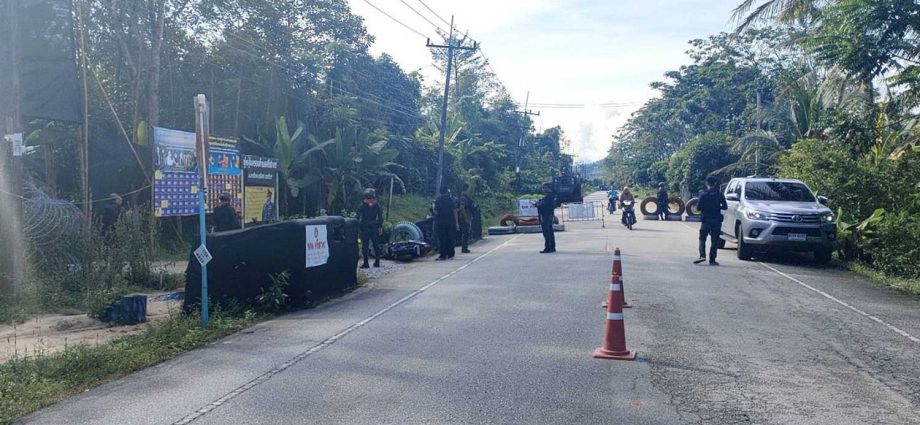New government gathering feedback but deputy PM says security concerns persist
PUBLISHED : 26 Sep 2023 at 16:14

The emergency decree imposed in three southern border provinces for the past 18 years is unlikely to be scrapped anytime soon due to ongoing security concerns, according to Deputy Prime Minister Somsak Thepsutin.
A working panel is currently gathering information about conditions from security forces, local leaders and residents to help the cabinet make a decision, said Mr Somsak, who chairs the committee that oversees the administration of the emergency situation.
Information from all stakeholders in the Muslim-majority region is essential after the cabinet last week decided to extend the decree in Narathiwat, Pattani and Yala for another month ending on Oct 17.
The decree is currently in force in most districts of the three provinces, except for Si Sakhon, Sungai Kolok, Waeng and Sukhirin in Narathiwat; Yaring and Mayom Mai Kaen in Pattani; and Betong and Kabang in Yala.
The cabinet’s decision to extend the decree for just one month — the normal period is three months — has led to talk about whether the government is preparing to announce a new policy initiative to deal with the restive region.
However, Mr Somsak said it would be too hasty to scrap the emergency decree entirely. Some local people disagree with the immediate lifting of the special security law while others want an adjustment of security measures, he added.
The minister also said the anti-torture law that took effect this year is a new tool expected to allay concerns about abuse of authority, as it requires law enforcement officers to follow guidelines when making arrests to prevent abuse and harassment.
The Prevention and Suppression of Torture and Enforced Disappearance Act came into force in its entirety on Feb 22 this year. It requires law enforcement officials to keep voice and video recordings of a suspect’s arrest and release, and guarantees the right of relatives to access information about a suspect in custody among others.
Several rights groups have been calling on the government to review the use of the special security laws in the region, such as the Internal Security Act and the emergency decree, over concerns about rights violations.
Low-level separatist violence has simmered in the border provinces for decades but it entered a new phase in 2004 after the Tak Bai massacre that resulted in 85 deaths. The emergency decree was first invoked in July 2005 and it has since been renewed every three months without fail, the latest renewal being the seventy-third.
From 2004 to the end of March 2022, the most recent date for which figures have been compiled by the monitoring group Deep South Watch, a total of 7,344 deaths and 13,641 injuries have been linked to violent incidents in the three provinces.

